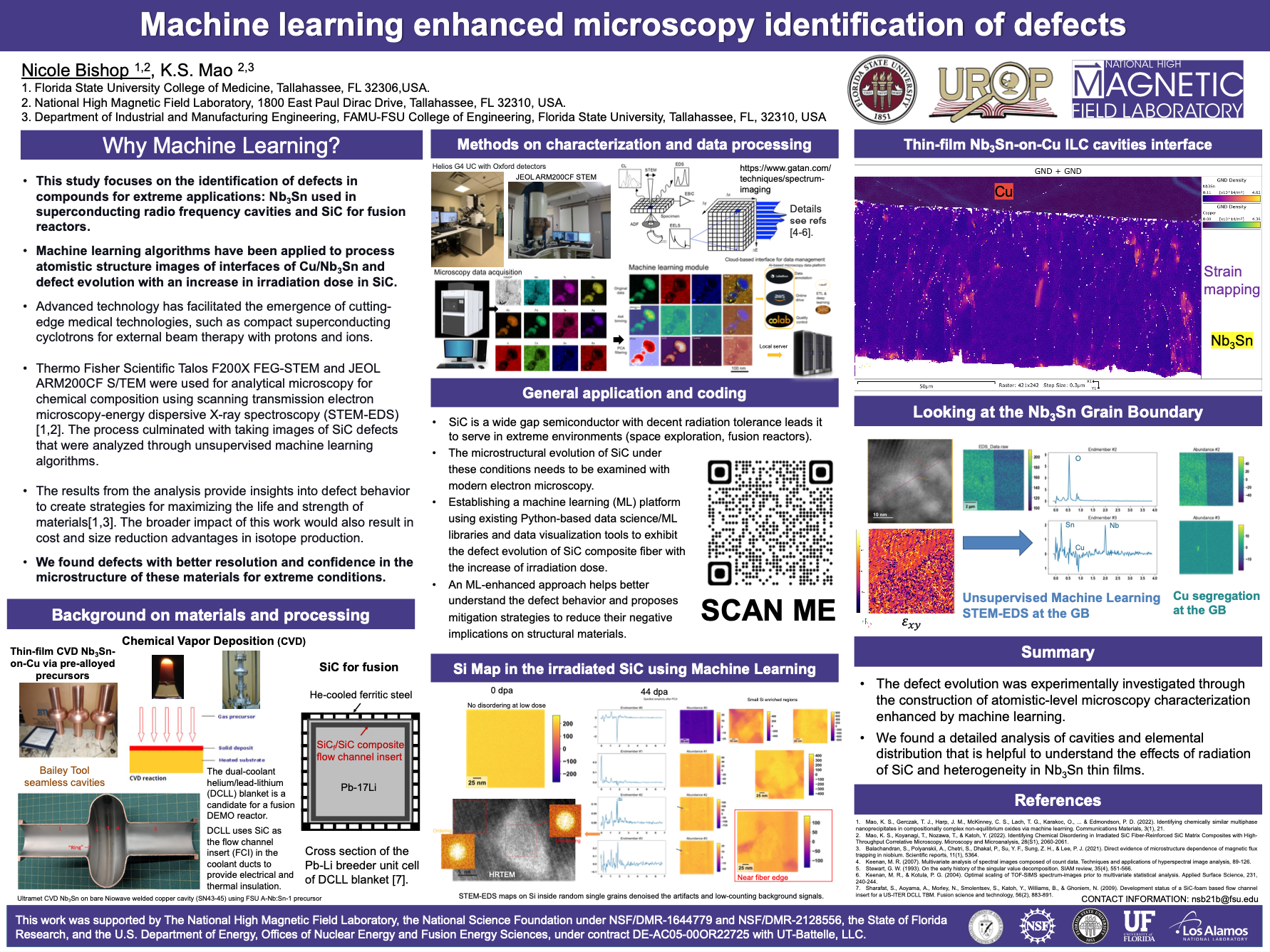Research Symposium
23rd annual Undergraduate Research Symposium, April 6, 2023
Nicole Bishop Poster Session 2: 1:30 pm - 2:30 pm/ Poster #310

BIO
Hi, this is Nicole Bishop from Cape Coral, Florida! I am a sophomore in the college of medicine, pursuing a bachelor’s degree in clinical professions. My ultimate career objective is to become a medical doctor. I am interested in the field of electron microscopy. UROP gives me an opportunity to apply machine learning to analyzing images and spectroscopy data related to different superconductors. Specifically, my current research focuses on exploring Nb3Sn thin films for their potential use in superconducting radio frequency (SRF) cavities of accelerators.
Machine learning enhanced microscopy identification of defects
Authors: Nicole Bishop, Keyou (Sam) MaoStudent Major: Clinical Professions
Mentor: Keyou (Sam) Mao
Mentor's Department: Department of Industrial and Manufacturing Engineering Mentor's College: FAMU-FSU College of Engineering Co-Presenters:
Abstract
This study focuses on the identification of detects in compounds and support for analyzing thin films of SiC and Nb3Sn used in superconducting radio frequency cavities. Machine learning algorithms have been applied to process atomistic structure images of defect evolution with an increase in irradiation dose in SiC. These advancements in technology have facilitated the emergence of cutting-edge medical technologies, such as compact superconducting cyclotrons for external beam therapy with protons and ions. Thermo Fisher Scientific Talos F200X FEG-STEM and JEOL ARM200CF STEM were used for analytical microscopy for chemical composition using scanning TEM-energy dispersive X-ray spectroscopy (STEM-EDS). The process culminated with taking images of SiC defects, which were subsequently analyzed through unsupervised machine learning algorithms. The results from the analysis provide insights into defect behavior that provide strategies maximizing the life and strength of materials. The broader impact of this work would also result in significant cost and size reductions advantages in isotope production.
Keywords: microscopy, machine, learning, defects

